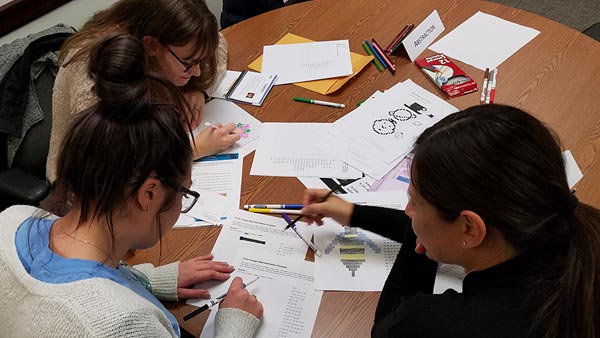December 1, 2021
Engaging Duluth students and teachers in computer science learning
The National Center for Computer Science Education (NCCSE), City of Duluth and Infosys Foundation USA have partnered to create more computer science learning opportunities for K12 students in Duluth, Minnesota. This collaboration, CS4DLH, will launch during Computer Science Education Week on Tuesday, Dec. 7.
During the two-hour event, Duluth-area elementary and middle school teachers will have the opportunity to engage in hands-on learning and complete activities that introduce programming, robotics and computational thinking. St. Scholastica education and computer science students and faculty will lead the activities. Mayor Emily Larson, a St. Scholastica alum, will also serve as one of the guest speakers.
According to Jennifer Rosato, NCCSE director, CS4DLH was developed to increase awareness of the need for students to learn computer science and computational thinking, and to provide professional development in alignment with Minnesota’s K12 standards. Currently, the state is ranked last in the nation with less than one in four high schools teaching computer science courses. CS4DLH will initially target elementary and middle schools as a way to reach all students, including female, Black, Indigenous, disabled and other students who are most frequently marginalized in the computer science field.
Today, knowledge of computer science is a requirement for being an engaged citizen, an on-ramp for many professional careers, and a top driver of Minnesota’s economy.
More events are scheduled for spring 2022. To learn more about the launch or how to attend as a member of the media, please, contact Jen Rosato.
About the National Center for Computer Science Education
The National Center for CS Education (NCCSE) champions, researches, and provides equitable computer science education opportunities for K16 students and educators. NCCSE supports over 2,500 teachers and 10,000 students across the country in teaching and learning computer science through curriculum, professional development and other services. The Center works to increase the capacity of school districts and teachers to teach CS, increase access to CS for students, increase the participation of marginalized students and improve the engagement of students in CS learning.


